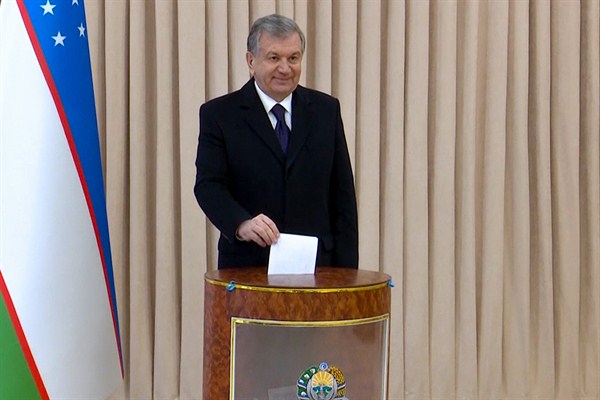Last month, The Economist boldly labeled Uzbekistan its “country of the year,” declaring that “no other country travelled so far in 2019.” It is a remarkable achievement for a state that perennially finds itself at the bottom of international rankings on corruption, governance and human rights issues. But while Uzbekistan certainly is changing, the government’s quest for economic stability, not democracy, is driving the process.
After taking power in 2016, President Shavkat Mirziyoyev quickly recognized that growing socioeconomic discontent could destabilize his regime. He saw that resentment toward a corrupted status quo could push angry populations into the streets, as it did in neighboring countries like Iran, Kazakhstan and Russia. Mirziyoyev wants none of that, so he launched a preventative program of political and economic reforms instead.
In an early test of those reforms, the country held parliamentary elections on Dec. 22. Only five parties, all of which generally support the government, were permitted to run. Unsurprisingly, the country’s de facto ruling party, the Liberal Democratic Party, won the most seats. The vote was still notable for the more robust public debate that took place around it, but political change in Uzbekistan will be slow, as authoritarian tendencies linger.

